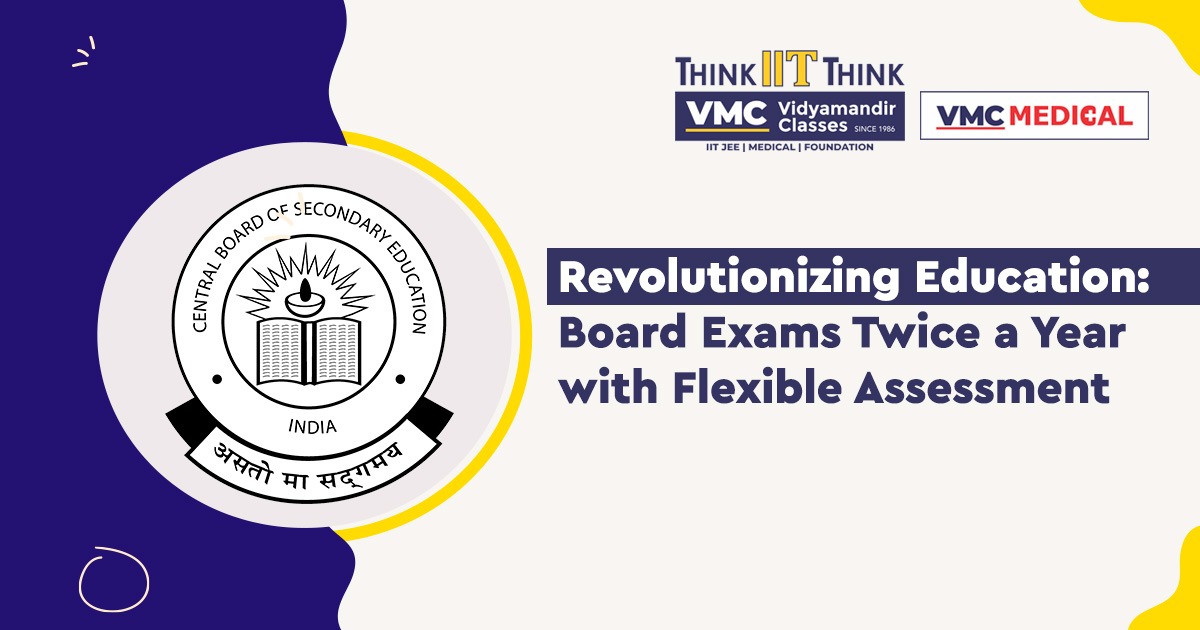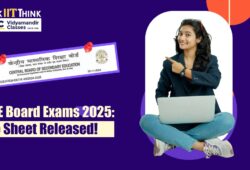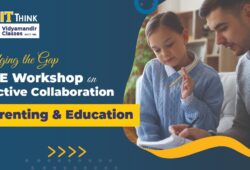Revolutionizing Education: Board Exams Twice a Year with Flexible Assessment
 Posted On
Posted On
323 total views, 1 views today
In a groundbreaking move that resonates with the essence of the New Education Policy (NEP), the government has recently unveiled a series of transformative changes poised to reshape the educational landscape of India. As we look ahead to the 2024 academic session, the Ministry of Education has rolled out an innovative curriculum framework, breathing life into the much-anticipated NEP reforms. With a sharp focus on holistic development and student-centric learning, these changes are set to redefine the way education is imparted and perceived in the country.
One of the hallmark revisions in this new paradigm is the reimagining of board exams. Departing from the traditional approach of high-stakes examinations, the Ministry has announced a bold move that will see board exams being conducted not once, but twice a year. This progressive shift is aimed at mitigating the undue pressure and stress that singular annual exams often inflict upon students. By providing two opportunities for students to excel, the government is ensuring that young minds have ample time to prepare and perform at their best.

What’s truly groundbreaking is the concept of allowing students to retain their best scores. This marks a departure from the conventional model, where a single performance in a high-stakes exam determined a student’s academic fate for the entire year. With this visionary change, students can now put their best foot forward not once, but twice annually. This not only reduces the disproportionate burden that a single exam can impose, but it also nurtures a more positive and growth-oriented mindset among students.
Underpinning these transformations is an acute understanding of the limitations of the existing system. Education is not about rote memorization or months of grueling coaching; it’s about fostering a deep understanding of concepts and the development of practical competencies. With this ethos in mind, the revamped examination structure will prioritize assessing a student’s comprehension and their ability to apply their knowledge effectively. This shift from a mere regurgitation of information to a comprehensive evaluation of skills reflects a sincere commitment to nurturing well-rounded individuals capable of contributing meaningfully to society.
In this pursuit of a more flexible and accommodating system, the government has ushered in a refreshing change to the choices available to students in classes 11 and 12. No longer confined to the rigid streams of arts, science, and commerce, students now enjoy the freedom to curate their academic journey according to their interests and aspirations. This move recognizes the diverse talents and inclinations of students and empowers them to chart a personalized educational course that resonates with their true passions.
The transformation doesn’t stop here. The government envisions a future where exams are no longer a source of trepidation but an opportunity for students to showcase their knowledge when they feel most prepared. The concept of ‘on-demand’ exams is set to take root, allowing students to take exams when they have mastered the subject matter. This forward-looking approach not only diminishes the specter of exam-related anxiety but also aligns education more closely with real-world scenarios where knowledge application is paramount.
However, to uphold the integrity of this dynamic system, it’s crucial that those responsible for crafting and evaluating these exams are equipped with the right skill set. The government recognizes this and proposes that both exam developers and evaluators undergo certified courses to ensure the highest standards of assessment. This commitment to quality assurance underscores the seriousness with which the government is approaching this holistic transformation.
It’s not just about exams; it’s about a fundamental shift in pedagogy. The outdated practice of ‘covering’ textbooks in a rigid classroom environment is now being reimagined. This paves the way for more interactive and engaging learning experiences that encourage critical thinking and application of knowledge. Simultaneously, the government acknowledges the financial strain that textbooks can pose on families and aims to optimize their costs, making education more accessible and inclusive.
As we stand at the cusp of this educational revolution, it’s important to acknowledge the intent and impact of these changes. The government is laying the foundation for an educational ecosystem that values individual growth, practical skills, and innovation over outdated norms. This revamped system acknowledges that education is not a one-size-fits-all endeavor; it’s a dynamic and personalized journey that should nurture the unique potential of each student.
Final Thoughts
In conclusion, the winds of change are sweeping through India’s educational corridors. The announcement of board exams being held twice a year, coupled with the liberty to retain the best scores, represents a quantum leap in the educational landscape. By embracing a more flexible, student-centric approach to assessments and learning, the government is sowing the seeds of a brighter and more prosperous future. As we eagerly anticipate the rollout of these reforms in the 2024 academic session, one thing is certain – education in India will never be the same again.




